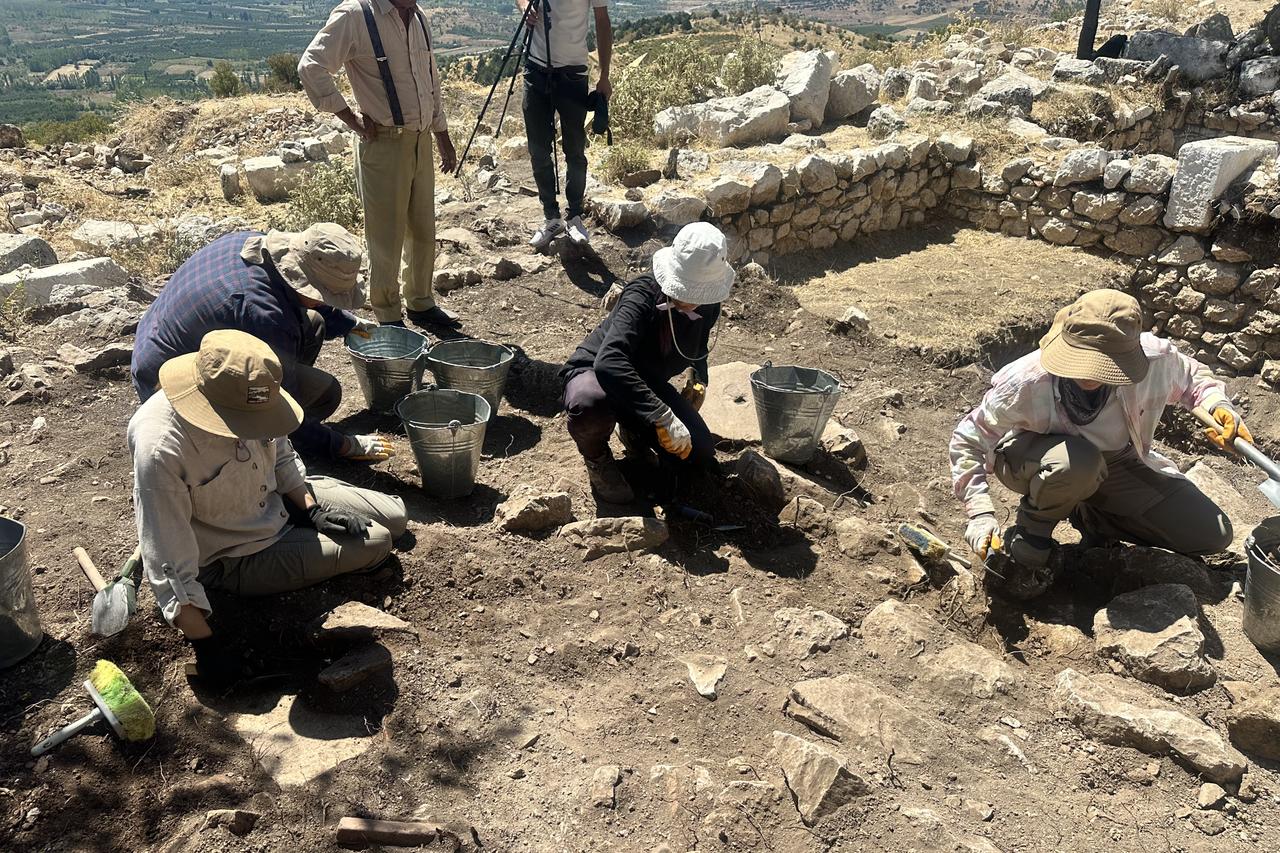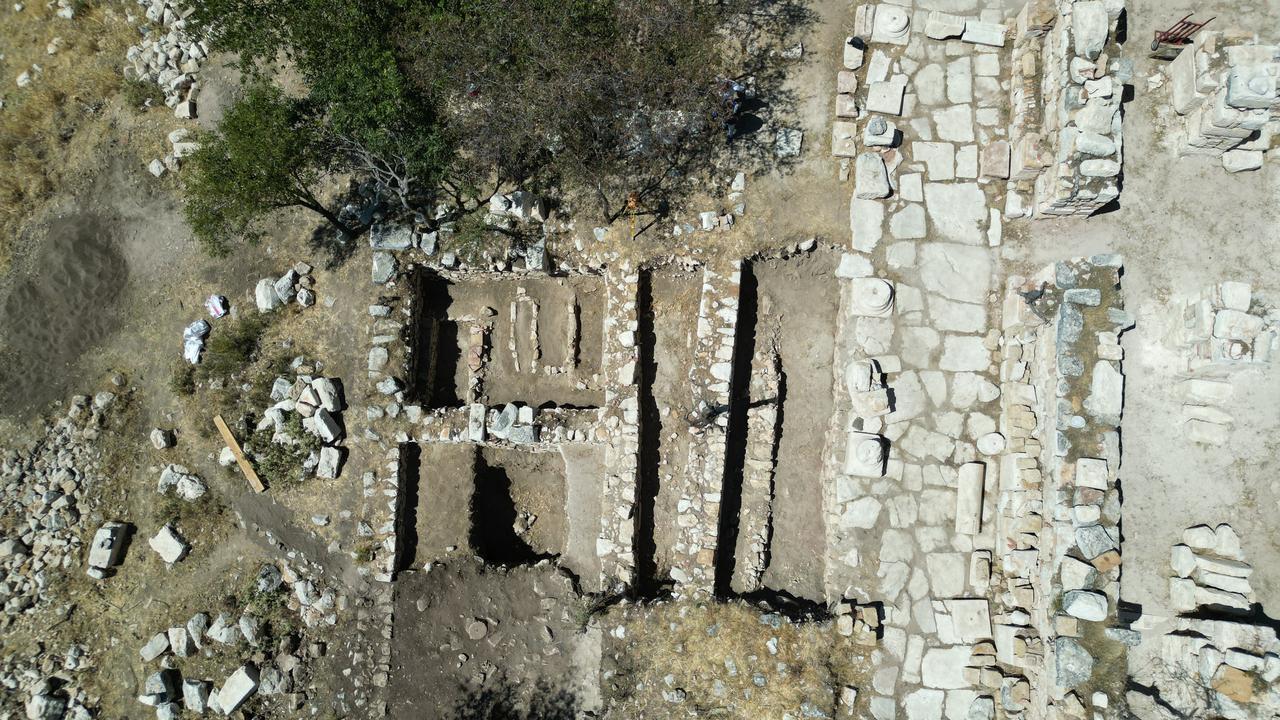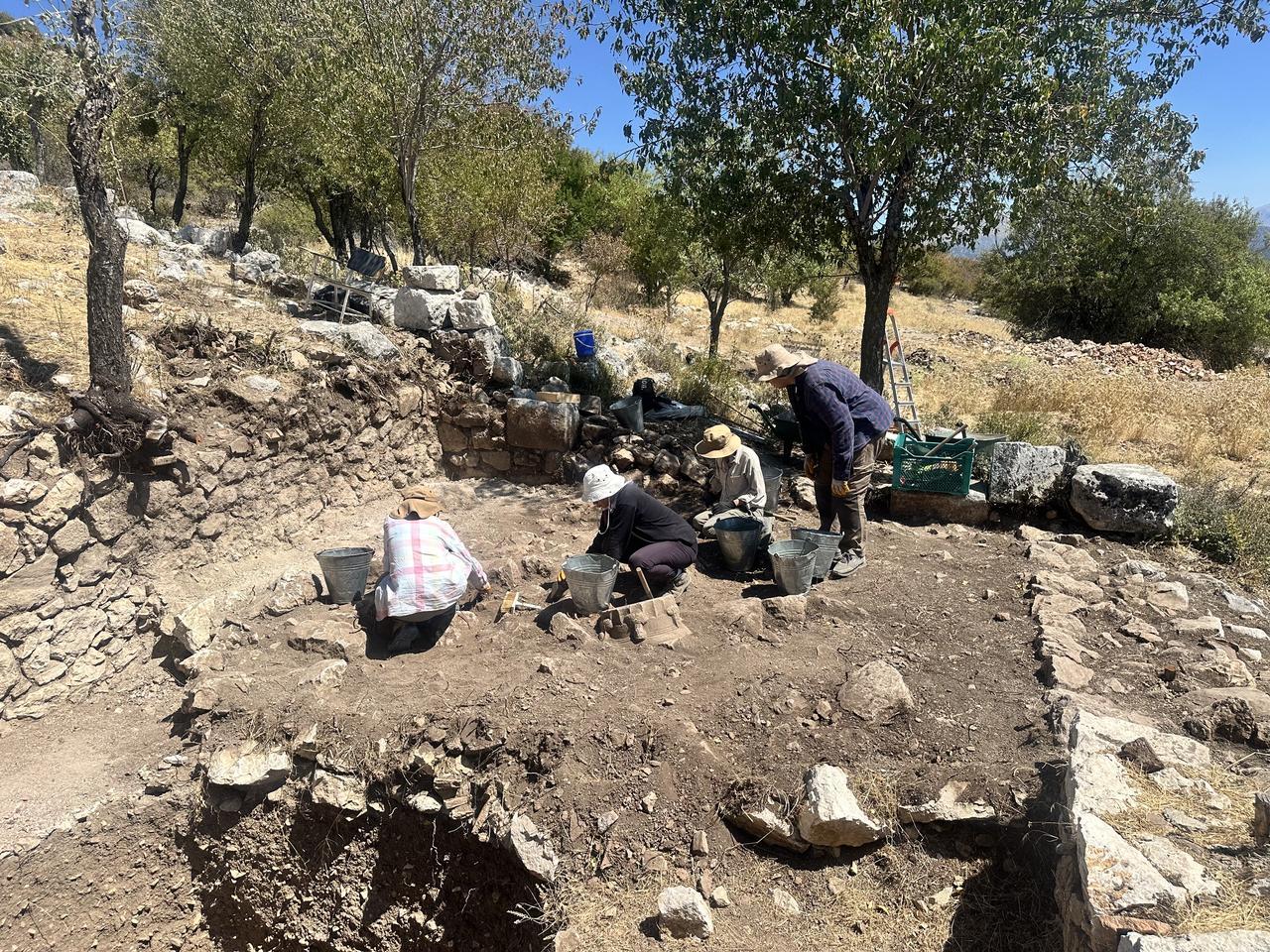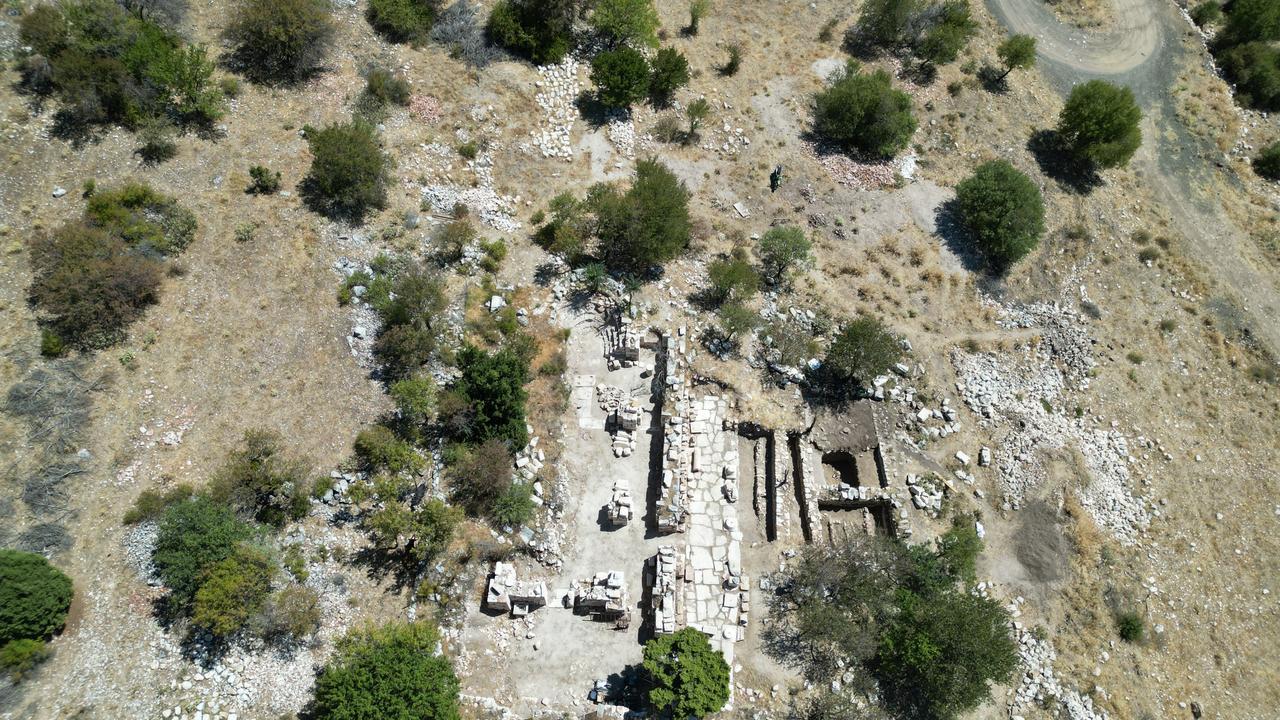
Archaeologists have uncovered storage rooms and kitchen facilities at the ancient city of Timbriada (also known as Tymbrias or Timbrias or Tymbriada) in Türkiye's Isparta province, revealing new insights into the dietary culture and economic life of inhabitants from over 2,000 years ago.
The archaeological excavations at the 2,200-year-old Timbriada Ancient City in the Aksu district are being conducted under the leadership of Suleyman Demirel University Archaeology Department faculty member Professor Fikret Ozcan.
The ancient city was established on the slopes of Asartepe in the second century B.C. and spread over approximately 2 kilometers (0.62 miles), serving as one of the critical centers of the Pisidia region.
Current excavation work is concentrated around the ancient city's church, which is known as the center of the settlement.

Professor Ozcan said that the team has been conducting excavation work in the region for five years.
During probing operations conducted approximately 30 meters (98.4 feet) west of the church, researchers identified structures that were used partly as storage rooms and partly as kitchens.
"In our probing work, we saw a place that was used partly as storage rooms and partly as a kitchen. This situation indicates the increasing importance of the church in the Late Antique Period," Ozcan said.

The excavation team made a significant discovery when they encountered carbonized seeds and grains during their work. Professor Ozcan emphasized the importance of this finding for understanding ancient agricultural practices.
"We encountered some seeds or grains, even though they were carbonized, in our work. This is very important. Perhaps in future studies, we have the possibility of reaching ancestral seeds that have survived to the present day in intact form," Ozcan said.
The professor highlighted that the discovery of seeds and grains represents a valuable finding that sheds light on agricultural history.
"This helps us understand the dietary culture, ecological adaptations, and economic life of people in that period. At the same time, it is important for today's agriculture in terms of genetic diversity," he said.
Ozcan also noted that coins were minted in the city starting from the 2nd century, information obtained from excavations conducted in front of Zindan Cave.
The ancient city was part of a Panhellenion Union during the Roman Empire period, which included 12 cities and was formed by cities such as Athens and Pergamon.

The ancient city possessed a vast area extending from Egirdir Yuvali village to Lake Beysehir, with settlements including Tynada, Basoren, Sircali and Deliklitas in its surrounding areas.
The Kybele (Meter) cult area, located in front of the Zindan Cave, was known as one of the most important sacred centers not only of the city but of the entire region in ancient times.
The depiction of Zeus, Dionysos, Hermes, and the Dioskuroi alongside Kybele on the city's coins reveals the diversity of beliefs.
Timbriada maintained its importance during the Roman period and appears in records as a bishopric center in the Late Antique Age.